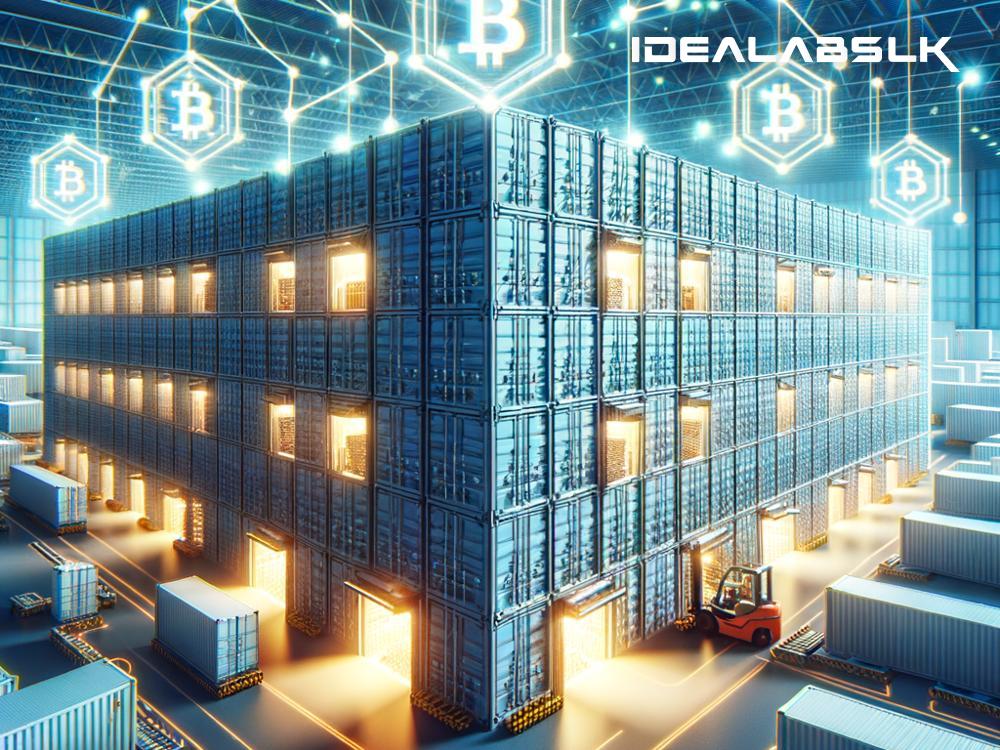Blockchain: A Key Player in Securing Cold Chain Logistics
The world is full of complex systems ensuring that the food you eat, the medicine you take, and the goods you use daily reach you safely and in perfect condition. One such crucial system is cold chain logistics, which refers to the temperature-controlled supply chain necessary for preserving and transporting perishable goods. From fresh fruits to vaccines, maintaining the right temperature from origin to consumer is vital. Ensuring the integrity of these goods isn't easy; it demands transparency, efficiency, and trust among multiple stakeholders. This is where blockchain technology comes into play, offering a promising solution to safeguard cold chain logistics.
What is Blockchain?
Imagine a ledger or a record book that’s not held by one person or organization but is distributed across a vast network of computers. This ledger records transactions in blocks, and once a block is filled, it's linked to the previously filled block, creating a chain. Hence the term "blockchain." The beauty of this technology is its transparency and security. Once data is recorded, it can’t be tampered with without altering every block that came after it, and since this data is mirrored across countless computers, hacking it is virtually impossible. These features make blockchain an ideal technology for improving the transparency and traceability in cold chain logistics.
Enhancing Visibility and Trust
One of the biggest challenges in cold chain logistics is the lack of visibility and transparency as goods move from the manufacturer to the consumer. This can lead to compromised product quality, waste, and loss of consumer trust. With blockchain, every step in the cold chain can be securely recorded and made visible to authorized parties. For instance, when a batch of vaccines is shipped from a manufacturer, each phase of its journey - from the departure, temperature conditions, arrivals, and handovers - can be recorded on the blockchain. This real-time data ensures that any deviations from the required conditions can be immediately identified and addressed, thus maintaining the integrity of the goods.
Reducing Fraud and Ensuring Compliance
Counterfeit products and regulatory compliance are significant concerns in cold chain logistics. Blockchain's secure and immutable nature helps combat these issues effectively. By tracking the production, storage, and distribution processes on a blockchain, stakeholders can verify the authenticity of the goods at any point in the supply chain. Moreover, since each transaction is recorded, organizations can easily demonstrate compliance with regulations, such as those governing the safe transport of pharmaceuticals or food products.
Streamlining Operations and Reducing Costs
Cold chain operations involve numerous parties, including producers, logistics companies, regulatory bodies, and consumers. The traditional processes for managing these operations are often paper-based, time-consuming, and prone to human error. Blockchain can simplify these processes by providing a single, immutable version of the truth that is accessible to all parties. This reduces the need for manual checks, audits, and reconciliations, thereby speeding up operations and reducing costs associated with delays, spoilage, and administrative overheads.
Real-World Applications and Success Stories
Several companies and organizations across the globe are already harnessing the power of blockchain to transform their cold chain logistics. For example, Walmart has partnered with IBM to implement a blockchain-based system for tracking its food products. This initiative has reportedly enhanced the efficiency of their food traceability system, significantly reducing the time to track produce from days to mere seconds. Similarly, the global shipping giant Maersk has collaborated with IBM to apply blockchain technology for improving the transparency and efficiency of its shipping operations, including cold chain logistics.
The Road Ahead
While the potential of blockchain in enhancing cold chain logistics is immense, widespread adoption is still in its early stages. Challenges such as technological complexity, the need for standardization, and concerns over data privacy need to be addressed. However, as technology evolves and stakeholders continue to recognize the significant benefits of blockchain, it's likely that we'll see more innovative applications transforming cold chain logistics in the years to come.
Blockchain technology represents a paradigm shift in how we can manage and secure sensitive supply chains like the cold chain. By providing an immutable, transparent, and secure platform for recording and sharing information, blockchain is not just a technological innovation but a means to ensure the integrity of our most critical goods. As we move forward, embracing such technologies will be key to enhancing the efficiency, reliability, and safety of cold chain logistics around the world.

